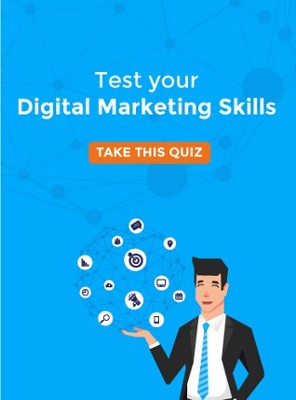With the pandemic, undoubtedly everything has changed. What has undergone changes the most is the work life of people around the world. With changing workspaces, recruitment patterns have also changed dramatically.
Not only have the changing work environments made a difference in the future of work, but the new innovative technologies have also made a significant impact. Many trends have been rising in recruitment patterns, and the future of work seems to be so much different from what it used to be in the pre-covid era.
In this blog, I will introduce you to some of the new recruitment trends that are rising and probably are here to stay. Using these trends can help any company to upgrade its recruitment strategies, and are must-know pointers if you are in the HR career path.
Future-of-work recruitment trends
Workplace flexibility
In response to the initial waves of the pandemic, many businesses ordered their employees to work from home. Employees also participated. So much so that many people want to keep telecommuting.
Hybrid work arrangements, in which employees can spend some time at home and some time in the office, are gaining popularity. Many people will find that this arrangement helps them achieve the work-life balance they've been seeking. It also satisfies the needs of businesses to get their workers back to the office.
This movement's encouragement of greater workplace adaptability and a healthier work-life balance is very encouraging. As a result, this change in the workplace paradigm will increase job satisfaction, which in turn will help businesses retain their current staff more effectively and recruit new, highly qualified employees.
Given how difficult it is for businesses to hold on to their employees, this strategy is more important than ever. In addition, the cost savings over recruiting and training new staff members are enormous.
Diverse and inclusive workforce
The importance of diversity and inclusion to HR professionals or leaders is on the rise because of the impact it has on the ability to find and hire top people. A diverse and welcoming workplace has been shown to increase both productivity and profits for organizations.
Recruiters have a significant role to play in helping companies meet their diversity goals by spotting and attracting a more diverse pool of candidates. It has become fundamental for any business that values attracting and retaining top personnel, providing a better customer experience, and increasing financial performance.
In order to level the playing field, this change necessitates that recruiting managers reevaluate their methods and perspectives when hiring. It's generally known that a more innovative, creative, and profitable workplace result from a staff that represents a wide range of cultural backgrounds.
Virtual hiring
Companies are turning to online interviewing and onboarding to keep the virtual hiring process going smoothly despite the COVID-19 pandemic. However, while the initial phone screen is still in place, in-person interviews have been replaced with video interviews.
It paved the way for innovative approaches in recruitment by placing a premium on making the most of available technology, cutting down on interview times, and including candidates from further afield.
Managers can keep in touch with applicants from the time they submit their resumes until they are offered the job, all without ever having to see them in person, thanks to virtual platforms. Survey data from Gartner shows that in response to Covid-19, 86 percent of companies have moved to online job boards.
Virtual job fairs and interviews are still highly preferred by most employers and job seekers even as people are constantly returning to workplaces. This has widened the scope of hiring by mitigating geographic boundaries. It’s also easier than ever to expand globally using an EOR service. These services simplify the process of onboarding overseas talent remotely, handling all the administrative tasks (including managing payroll, benefits, and tax obligations) and ensuring compliance with local employment regulations.
Focus on skills
Already on the rise prior to the pandemic, the frequency and severity of digital disruptions increased as a result of the pandemic.
There has been a significant increase in the number of available positions in the labor market for those with digital capabilities such as data analysis, artificial intelligence and machine learning, robotics, software, application development, etc.
Soft skills such as good communication, resilience, adaptability, self-motivation, and the confidence to overcome difficulties such as the one imposed by the epidemic have become increasingly desirable to employers alongside technical and digital expertise.
Use of Artificial Intelligence
The application of artificial intelligence to enhance talent sourcing, identification, and engagement is a rapidly expanding field in the world of talent acquisition software.
Employers can benefit from AI-enabled systems for managing large amounts of data and a wide range of human resources operations to deal with the recent surge in the job market.
Artificial intelligence is capable of doing intelligent tasks, such as analyzing resumes for desired qualities and qualifications. With the help of AI, recruiters may more efficiently sift through a huge number of job boards, process papers, and read and process data from these sources. Candidates are identified, selected, and hired with less bias using AI.
By interacting with job seekers in real-time, AI-enabled chatbots for recruitment can increase interest and knowledge about available positions. Employers can benefit from NLP by having more accurate and appealing job advertising and offer letters written without inappropriate wording that could turn off some qualified applicants. It also makes it possible for chatbots to provide accurate and pleasant responses to human inquiries.
Candidate-centric market
The largest and most significant change in the realm of recruitment is the transition to a candidate-centric job market. Applying has never been easier, and applicants now have greater leverage in discussions about salary and benefits.
Recruiters and HR professionals will need to up their game if they want to compete for and retain the best candidates. It's possible that the old methods of securing the services of highly sought-after individuals are no longer effective.
This means that in the wake of the pandemic, we may anticipate a wider range of innovative approaches to recruiting, including new forms of sourcing, recruitment marketing powered by data, and employer brand communications.
Prioritizing internal hiring
Due to the increased competition for available talent in recent years, an increasing number of businesses are becoming more receptive to the idea of promoting from inside the organization. In addition, the aftermath of the epidemic did not diminish people's desire for inside transformation.
Internal promotions are a great way to boost morale and loyalty within an organization. In addition to this, it makes the process of hiring new employees and the number of new employees produced more efficient.
People in this day and age want something more out of their work lives than just a job; they want to advance their careers. In order to keep their best employees and cultivate future leaders, modern companies need to demonstrate to their staff members how their efforts will be rewarded with promotions in the workplace with specific examples.
Use of social media for recruitment
Social recruitment refers to the process of using online social networks to seek, evaluate, and hire potential new employees.
The increasing popularity of social media as a means of posting job openings is evidenced by the fact that more and more businesses and recruiters are doing so. Many companies, for instance, use social media platforms like LinkedIn and Instagram to find and recruit qualified people. Paid advertisements have also been used for this purpose.
In fact, many new hires say they learned about their employer through social media before making their decision. Employers who ignore social media risk being out-recruited by their rivals.
In a crux
There has been a permanent shift in how workers view and approach their jobs as a result of the ongoing changes in the way people work. In spite of the fact that the pandemic prompted many companies to rethink their methods of talent acquisition, we maintain that these shifts were necessary in order to remain competitive in the current, dynamic labor market.
Visit www.webdew.com to read relevant blogs to stay updated in your field. Or, in case you are looking for new opportunities, feel free to check out our career page.





